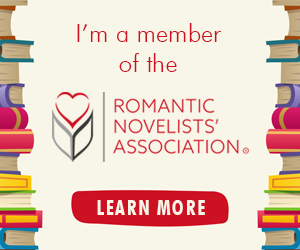- Back to Home »
- Guest Post »
- Guest Post: The Lie by C.L Taylor
Tuesday, 28 April 2015
The Lie by C.L Taylor
Release Date: 23rd April 2015
Publisher: Avon UK
Publisher: Avon UK
Genres: Psychological Thriller
Brook Cottage Books is thrilled to welcome C. L Taylor to the blog with a fab guest post. Her book, The Lie was released on 23rd April and promises to be a roller coaster ride of a book! Its on my TBR pile and I cannot wait to start it!
Guest Post by C.L Taylor
Guest Post by C.L Taylor
THE LIE,
my new psychological thriller, was inspired by my fascination with the
mechanics of female friendships, particularly female friendships that aren’t as
stable as they appear – friendships where there’s underlying resentment,
competitiveness and resentment that no one will confront for fear of rocking
the boat. I wanted to put four friends in a dangerous crucible-like situation
and see how far they would have to be pushed to betray and turn on each other.
I’d heard the term ‘toxic friendship’ bandied around for a few years but what
exactly is a toxic friendship?
According
to life coach Wendy Capewell there are five signs that a
friendship is toxic:
- We feel undermined, put down and not as ‘good’ as our friend
- We feel stressed by their constant demands and the expectation that we will fit in with their lives, even if it’s not what we want
- We feel weighed down by them constantly off-loading onto us but never reciprocating
- We feel everything is always on their terms and never ours
- They can be unreliable, dropping us and changing plans at a moment’s notice.
In very
basic terms a toxic friendship is a friendship that has become unhealthy; it’s
a negative force in your life, rather than a positive one. According to Jan
Yager, Ph.D, author of When Friendship Hurts: How To Deal With Friends Who Betray,Abandon, Or Wound You there are seven central issues in
any friendship – trust, empathy, honesty, confidentiality, competitiveness,
acceptance, and appropriate boundaries. Issues in any of these areas can
indicate a negative, or toxic, friendship. She identifies 21 distinctive
friendship types that revolve around these areas and, for my research, I
focussed in on seven types:
there are seven central issues in
any friendship – trust, empathy, honesty, confidentiality, competitiveness,
acceptance, and appropriate boundaries. Issues in any of these areas can
indicate a negative, or toxic, friendship. She identifies 21 distinctive
friendship types that revolve around these areas and, for my research, I
focussed in on seven types:
- The Risk-taker (puts you in harm’s way because of illegal or dangerous behaviour)
- The Cheat (lies or steals your romantic partner)
- The Rival (desires whatever you possess and may try to take it from you)
- The Rejector (dislikes you and lets you know it)
- The Interloper (overly involved in your life)
- The Controller (needs to dominate you or the friendship)
- The Double-Crossed (betrays you big-time).
Without
giving too much away about the plot of the book I needed my main character,
Emma, to have dysfunctional (or ‘toxic’) relationships with two of the three
girls in her friendship group. I needed the friendships to appear healthy and
supportive on the surface but the cracks in the relationship had to run deep.
But what had caused those cracks? I knew that jealousy, low-self esteem and
anger were involved and found some fascinating soundbites in Yager’s chapter
‘What’s Really Going On?’:
Jealousy
“As hard
as it is, remember that jealousy is not about you. Jealousy is about
what your success or example stirs up in someone else that causes her to have
the need to make you feel bad. The other person feels inadequate and threatened
by you so she does the only thing she, sadly, is capable of doing to retaliate.
She criticizes you, pulls away from you, withholds praise, ignores you, or
devalues your accomplishment, to try to make you feel as bad about yourself as
she feels about herself.”
Anger
“Jealousy
and envy are tied to anger. Behind those powerful emotions, which often cause
betrayal in friendship, is the anger that a friend, through no fault of his
own, has made someone feel less than he or she wants to feel.”
Low
self-esteem
“If your
friend’s self-esteem is low, she may not feel worth of friendship and,
consciously or unconsciously, may do or say things to push you away. These
‘tests’ on your friendship, unfortunately, are the hoops that some low
self-esteem friends may put you through to force you to ‘prove’ your
friendship.
Once I’d
established the reasons behind the cracks in the women’s friendship I started
thinking about my characters’ pasts. What had happened in their lives to give
them low self-esteem and anger issues? Why did they feel so jealous of another
friend? And why did all the women become friends in the first place?
In real
life you can walk away from toxic friendships and get on with your life. In THE
LIE, they couldn’t.





































Post a Comment